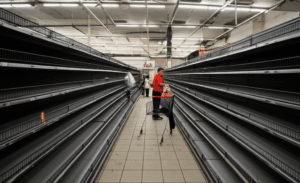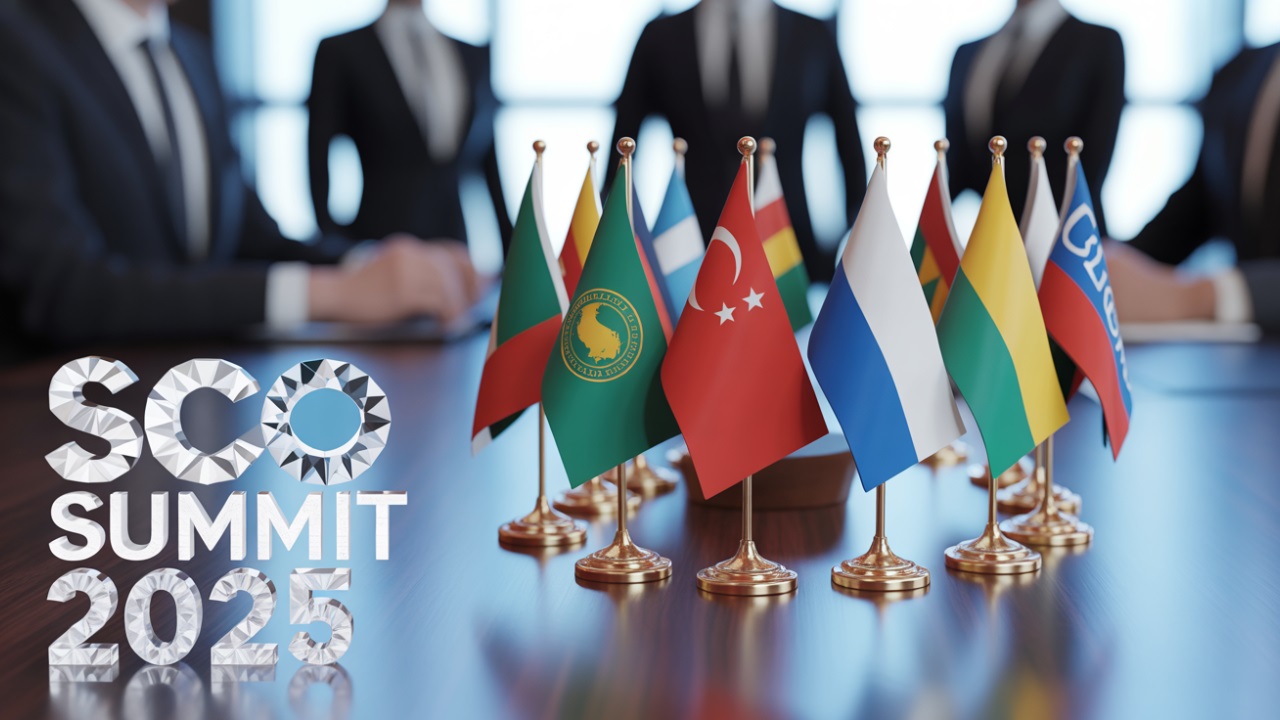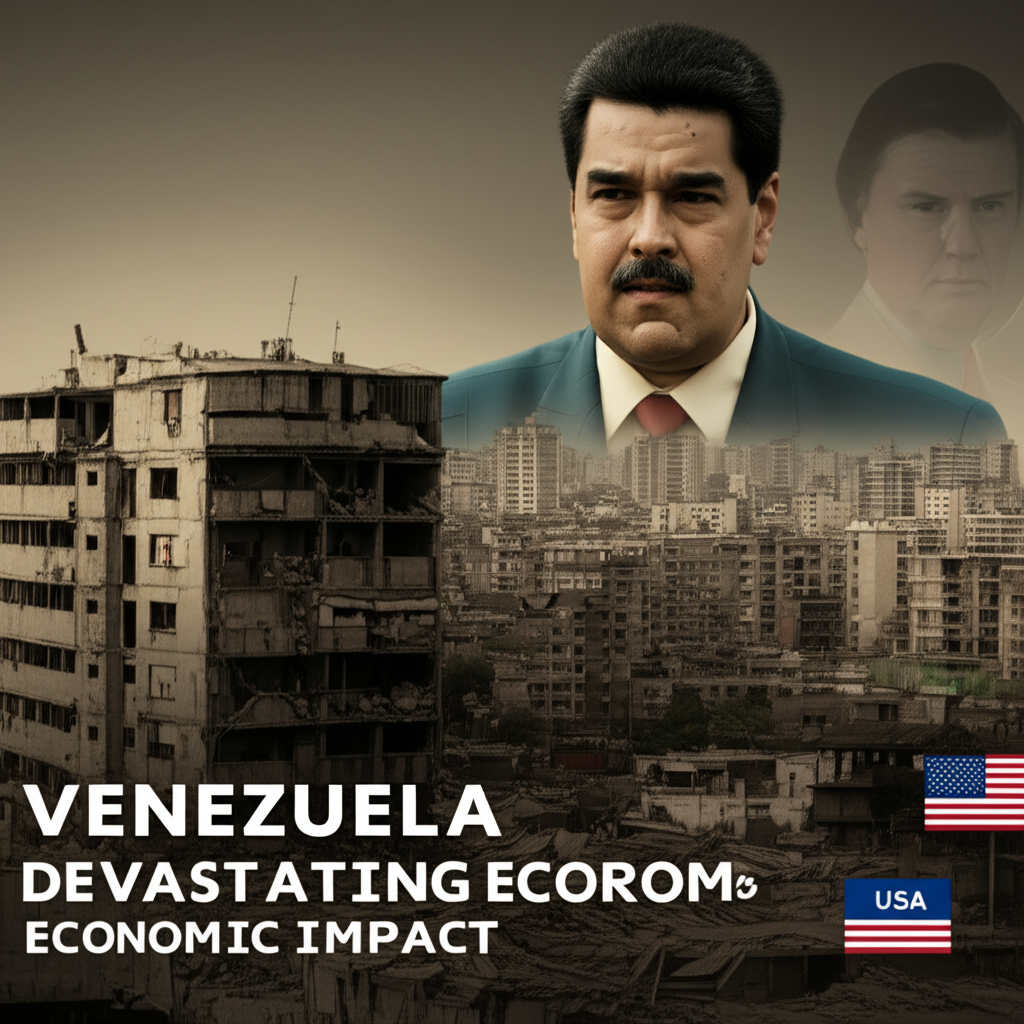A Distant Mirror: Unpacking the Crisis in Venezuela and Its Lessons for South Africa
Venezuela Maduro, a name that evokes images of political turmoil, economic collapse, and a humanitarian crisis of staggering proportions, remains at the centre of a geopolitical storm. For many South Africans, the chaos unfolding in this distant South American nation might seem like a remote problem, another headline in a world saturated with conflict. Yet, the story of Nicolás Maduro’s Venezuela is more than just a foreign affairs issue; it is a profound and cautionary tale with striking parallels and critical lessons for developing nations, including our own. From debates on state intervention in the economy to the consequences of political polarisation and resource dependency, the Venezuelan saga serves as a crucial case study in governance, international relations, and the devastating human cost when leadership fails.
This article delves into the complex reality of Venezuela under Nicolás Maduro, exploring his rise to power, the catastrophic unravelling of the nation’s economy, the intense standoff with the United States, and, most importantly, why this matters deeply to South Africans.
What is on this article
Table of Contents
From Successor to Autocrat: The Rise of Nicolás Maduro
To understand the current crisis, one must first look back to Maduro’s charismatic and controversial predecessor, Hugo Chávez. A former army officer, Chávez came to power in 1999, launching what he called the “Bolivarian Revolution.” Riding a wave of high oil prices, he funnelled the nation’s vast oil wealth into popular social programmes, known as misiones, which provided food, healthcare, and education to the poor. These policies lifted millions out of poverty and earned him immense loyalty among Venezuela’s working class.
However, this model was built on a fragile foundation: an almost total dependence on oil exports and a growing centralisation of power. Chávez nationalised key industries, from telecommunications to agriculture and cement, eroding the private sector and creating a sprawling, often inefficient state-run apparatus.
Nicolás Maduro, a former bus driver and trade unionist, was a loyal Chávez protégé who rose through the ranks to become Vice President. When Chávez died from cancer in 2013, he anointed Maduro as his successor. Maduro narrowly won the subsequent presidential election, inheriting a system already showing deep cracks. The oil boom was tapering off, and the economic mismanagement, price controls, and heavy government spending of the Chávez era were about to collide with reality. Maduro lacked Chávez’s charisma and political capital, and his tenure would soon be defined by the very collapse his predecessor’s policies had set in motion.

The Great Unravelling: An Economy in Freefall
The Venezuelan economy is a textbook example of how resource wealth can become a curse. For decades, the country was one of Latin America’s richest, courtesy of possessing the world’s largest proven oil reserves. Today, it is a nation gripped by poverty and scarcity. The collapse was not a single event but a slow, grinding process fueled by a perfect storm of factors.
The Oil Price Crash: In 2014, global oil prices plummeted from over $100 a barrel to below $50. For a country that relied on oil for roughly 95% of its export earnings, the shock was catastrophic. The government’s revenue dried up, leaving it unable to fund its extensive social programmes and import essential goods like food and medicine.
Destruction of Productive Capacity: The Chávez-era nationalisations had hollowed out the country’s non-oil sectors. When the government seized private farms and factories, production plummeted due to mismanagement, lack of investment, and corruption. Price controls, intended to make goods affordable, backfired spectacularly. They forced producers to sell at a loss, leading many businesses to shut down entirely. This created massive shortages, and the sight of empty supermarket shelves became a national symbol of the crisis
Hyperinflation and Currency Collapse: To cover its massive budget deficits, the Maduro government simply began printing money. This triggered one of the worst hyperinflation episodes in modern history. Prices began doubling every few weeks, and then every few days. In 2018, inflation reached an estimated 1.7 million percent, according to the International Monetary Fund (IMF). The national currency, the Bolívar, became practically worthless. Citizens needed wheelbarrows of cash to buy simple groceries, and many reverted to barter or the use of the US dollar on the black market.
The impact on business and daily life has been devastating. The formal economy has all but disappeared, replaced by a patchwork of informal trade and survival tactics. The minimum wage, at its lowest point, was equivalent to just a few US dollars a month, not nearly enough to feed a family. This economic implosion laid the groundwork for the political and humanitarian disaster that would follow
The Venezuela Maduro Government vs. The World
As the economy disintegrated, so too did Venezuela’s democratic institutions. The Maduro government systematically moved to consolidate power, marginalising political opposition and suppressing dissent. A key turning point came in 2018 when Maduro claimed victory in a presidential election widely condemned as fraudulent by international observers. The main opposition parties were either banned or had boycotted the poll, leading many countries to declare the result illegitimate.
In response, the opposition-controlled National Assembly declared its leader, Juan Guaidó, as the interim president in January 2019, citing a clause in the constitution. This bold move created a dramatic split on the world stage. More than 50 countries, including the United States, Canada, and many European and Latin American nations, recognised Guaidó as Venezuela’s rightful leader. Maduro, however, retained the loyalty of the military and the state apparatus, and was backed by key international allies like Russia, China, and Cuba.
This set the stage for a tense and protracted standoff, with the USA vs Venezuela dynamic taking centre stage.
The Trump Administration’s “Maximum Pressure” Campaign
- Crippling Economic Sanctions: The US Treasury Department imposed a series of punishing sanctions targeting the heart of the Venezuelan economy. The most significant of these were placed on PDVSA, the state-owned oil company, effectively banning it from trading in US financial markets and drastically curtailing its ability to export oil. Further sanctions targeted individuals in the Maduro government, the central bank, and the gold mining sector, aiming to cut off all sources of revenue.
- Diplomatic Isolation: The US led a global coalition to recognise Juan Guaidó, transferring control of many of Venezuela’s foreign assets, such as bank accounts and the US-based oil refiner Citgo, to the opposition.
- Rhetoric and Threats: Trump administration officials repeatedly stated that “all options are on the table,” hinting at the possibility of military intervention, though this never materialised.
The impact of these sanctions is a subject of intense debate. Proponents argue they were a necessary tool to punish an authoritarian regime and choke off the funds it used to repress its people. Critics, including a report from the UN Human Rights Council, claim the broad economic sanctions exacerbated the humanitarian crisis, hurting ordinary Venezuelans far more than the political elite. They argue that by preventing the country from selling its oil or accessing international finance, the sanctions made it impossible to import food, medicine, and essential equipment for public services like water and electricity.
Regardless of the intent, the result was a deepening of the economic misery and a further entrenchment of the political stalemate. Maduro used the sanctions as a powerful propaganda tool, blaming the “US blockade” for all of the country’s problems and rallying his base against a common external enemy.
economic decisions made by the Maduro government, compounded by international sanctions that have squeezed an already failing state.
The South African Connection: Echoes and Warnings
So, why should the story of Venezuela Maduro resonate so strongly in South Africa? The parallels, while not identical, are too significant to ignore. The Venezuelan experience offers a stark warning about the potential consequences of certain political and economic trajectories.
1. Regional Stability Matters
Venezuela’s collapse could trigger mass migration, drug trafficking, and violence spilling into neighboring countries. For South Africa, this threatens:
- Trade routes through Latin America.
- Investment security in resource-rich regions.
- Bilateral relations with both the U.S. and Venezuela-aligned states
2. BRICS Fractures
As a BRICS member, South Africa has historically supported Maduro’s legitimacy, voting against U.S. resolutions at the UN. This stance risks alienating Western trade partners while strengthening ties with Russia and China—a double-edged sword for businesses navigating sanctions.
3. Oil Price Volatility
Venezuela holds the world’s largest proven oil reserves. Sanctions and production collapses disrupt global oil markets, directly impacting South African fuel costs and energy security.
4. Sanctions Compliance
South African companies operating internationally must avoid inadvertently violating U.S. sanctions. The 25% tariff on Venezuelan oil importers could ensnare third-party traders, forcing businesses to audit supply chains rigorously

Business Implications: Navigating Risk
For Miners and Commodity Traders
Venezuela’s gold and diamond sectors are riddled with illicit trade and sanctions evasion. South African mining firms face reputational and legal risks if linked to Maduro-backed operations
For Exporters and Importers
Shipping routes through the Caribbean may face delays or heightened military scrutiny. Insurance costs could rise for cargo traversing conflict-prone zones
For Investors
Venezuela’s hyperinflation and economic meltdown serve as a cautionary tale against overexposure to unstable regimes. Diversifying portfolios away from high-risk emerging markets is prudent.
For Policymakers
South Africa must balance its non-aligned foreign policy with economic realities. Supporting Maduro may invite U.S. retaliation, while abandoning him could undermine BRICS unity
Bottom Line
Nicolás Maduro’s standoff with the U.S. is more than a ideological battle—it’s a economic wrecking ball with global repercussions. For South Africans, the lessons are clear:
- Geopolitical risks must be factored into business strategies.
- Diversification is key to weathering commodity shocks.
- Sanctions compliance isn’t optional—it’s existential.
As Maduro vows to defend Venezuela with “rifles and missiles” 6, the world watches nervously. For South Africa, the crisis is a stark reminder that in a connected world, no nation is an island.
Stay informed with Patriot Pulse for more analysis on global events impacting South Africa.
SCO Summit 2025: Pivotal Key to SA’s Best New World
The SCO summit 2025 might sound like more political alphabet soup, but this high-stakes meeting of giants like China and…
Venezuela Maduro’s Devastating Economic Impact
The name Venezuela Maduro has become synonymous with economic collapse, but how did one of the worlds most resource-rich nations…


